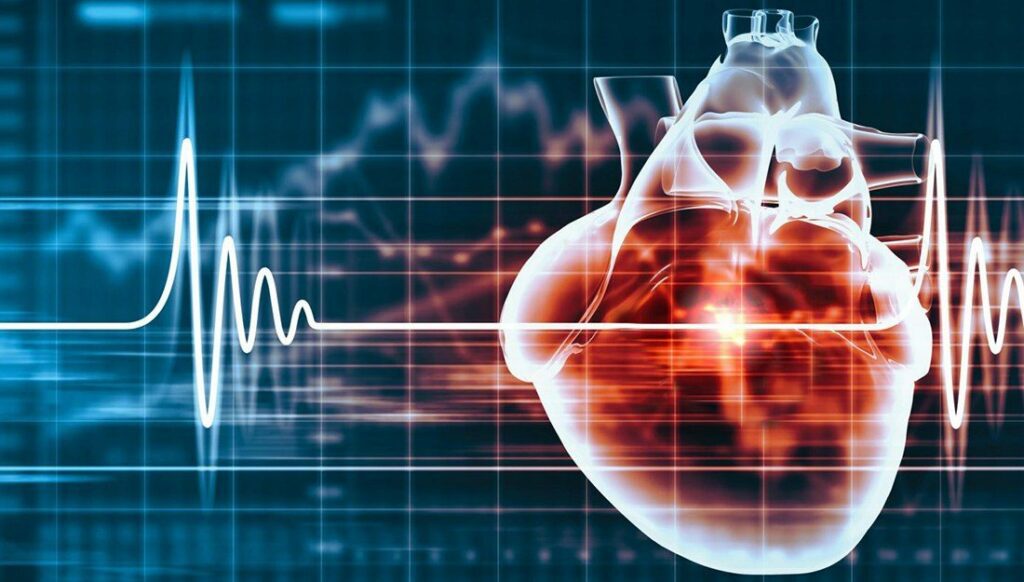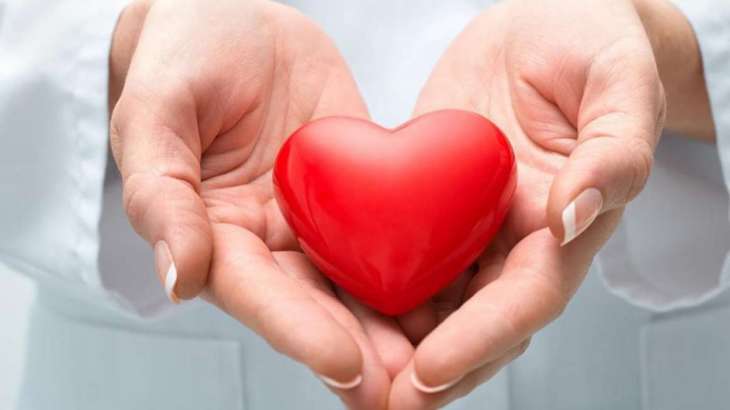Signs and Arrhythmia Symptoms of Heart: Considering the rise in cases of heart issues, everyone should be aware of the signs and symptoms of an unhealthy heart.
Heart problems are the leading cause of death in the United States. More than 697,000 people died from heart disease in 2021, according to the CDC, with nearly one in five deaths from heart disease. That’s why it’s important to know the signs of an unhealthy heart.
“Cardiovascular disease kills more patients than all cancers combined,” reports The Heart Foundation. The website also noted that someone dies of heart disease every minute in the United States. An unhealthy heart is also a focus of the medical field. More than $320 billion is spent each year treating heart disease.
Some life-threatening issues and diseases caused by an unhealthy heart
Heart attacks: Blood flow (thus, oxygen) to the heart is partially completely cut off to the heart. Heart attacks are caused by blocked arteries.
Heart failure: This happens when the heart isn’t able to pump blood in and out the way it normally does.
Coronary heart disease: CHD occurs when plaque builds up in the two coronary arteries in your heart. It kills most people with any heart problem.
Strokes: These happen when blood flow from your heart to your brain is impaired or ceases.
So needless to say, it’s important to understand your heart and the state of its health.
There are many warning signs of an unhealthy heart that are passed off as simple inconveniences or non-serious medical issues. While having one of these symptoms may not be a strong indicator of an unhealthy heart, having multiple symptoms such as a persistent cough and pain in the chest may indicate that you have heart disease or that a heart attack is impending.
10 signs and symptoms of an unhealthy heart
If you experience a combination of any of these symptoms, it’s important you call a health professional to get the help you need.

Shortness of Breath
Besides the heartbeat, the involuntary inhaling and exhaling of the lungs go unnoticed by most people when it is working properly. When it stops working properly, however, it becomes very noticeable. Shortness of breath is the sensation of not being able to breathe efficiently. The lungs may feel heavy, or the patient may feel compelled to breathe rapidly and shallowly.
Shortness of breath may result from anxiety, anemia, or allergic reactions, but the underlying cause is usually pulmonary (lungs) or cardiac (heart) in nature. A dangerous pulmonary embolism may first reveal itself through sudden shortness of breath.
Other times, shortness of breath develops gradually. It may be a sign of aortic disease, arrhythmia, or heart failure.
Whether sudden or gradual, shortness of breath is never a symptom to take lightly.
Chest Discomfort
If you suddenly have severe chest pain or heaviness or burning in the central part of the chest, radiating to the jaws/left arm and the discomfort is increasing with time, then it generally indicates an evolving heart attack and cardiac consultation should be done
Lack of Stamina
It’s counterintuitive – we associate exercise with a healthy heart. But remember, a sedentary lifestyle is a risk factor for heart disease, not a one-to-one correlation. Heart disease can occur in people who lead an active lifestyle and engage in strenuous physical activity on a regular basis, especially if there is an underlying heart condition.
Changes in the body’s exercise tolerance may be a useful early warning sign of impending heart failure.
Watch for signs of fatigue, loss of strength or endurance, and dizziness, chest discomfort, nausea, and shortness of breath during exercise. Excessive sweating, especially cold sweats, can also be a sign of heart problems.
Irregular Heartbeat
It is usual for your heart to race when you are nervous or excited or to skip or add a beat now and then. However, consult your doctor if your heart is beating out of time for more than a few seconds or if this irregular heartbeat occurs very frequently.
Snoring and Sleeping Problems
Episodes of sleep apnea, which can cause sleepers to wake up gasping for air, cause inconsistent sleep patterns that can be stressful on the heart. Sleep apnea “prevents restful sleep and is associated with high blood pressure, arrhythmia, stroke and heart failure,” the American Heart Association said. Recently developed sleep apnea or snoring problems can indicate there is something wrong with the heart.
There is also a disorder called obstructive sleep apnea (OSA), which is directly related to high weight and obesity—two leading factors in heart disease. OSA occurs when “weight on the upper chest and neck contributes to blocking the flow of air,” causing anxious sleeping patterns. Once sleep apnea has been treated and/or corrected, doctors have noticed drops in patients’ blood pressure.
Heartburn, Stomach pain, or Back pain
People – women especially – need to be especially careful of persistent heartburn, stomach or back pain. Many factors cause these conditions, but for reasons not fully understood, women have a much higher propensity to manifest heart trouble as heartburn, stomach pain or back pain, up to and including early warning signs of a heart attack. The condition may worsen and spread to involve the chest or left shoulder, more classic indicators of an unhealthy heart.
Both men and women should be especially careful if they have recurrent stomach conditions like nausea, acid reflux, GERD, indigestion, bloating, or abdominal pain. Yes, there could be many causes, but the possibility that this is a gender-specific indicator of heart trouble should not be discounted.
Sexual Health problems
“Erectile dysfunction—the inability to get and keep an erection firm enough for sex—can be an early warning sign of current or future heart problems,” the Mayo Clinic reported. ED can be caused by an improper relationship between the flow of blood from the heart to the penis, indicating possible atherosclerosis—the narrowing of arteries and a cause for heart disease.
“Sexual dysfunction was related to the severity of cardiovascular disease,” one study said. “When they resumed sexual activity, patients with heart disease reported significant difficulty, including a lack of interest in sex, sexual dissatisfaction, and a decrease in the frequency of sexual activity,” which highlights the connection between sexual problems and heart disease. This study included women, too. The female sexual drive can diminish due to improper blood flow to the genital area caused by an unhealthy heart.
Persistent Cough
Coughing is a common symptom of many common ailments, including colds, flu, and bronchitis, so it’s not necessarily a sign of a heart problem. This is a sign of congestive heart failure.
According to the government health website, “When the heart can no longer pump effectively, blood can back up into the veins that carry blood to the lungs.”, fluid is pushed into the air spaces (alveoli) of the lungs.” Coughing is caused by irritation and fluid in the lungs and resembles shortness of breath.
Swelling in the leg or trouble while climbing stairs
If you notice swelling of the leg, shortness of breath, or walking or climbing stairs, you could be having a heart ailment related to valvular heart disease or weak health muscles.
Extreme Fatigue
Feeling exhausted all the time can be a symptom of heart failure and other illnesses. If you are tired and have been working long hours or staying up late, it is probably not your heart – but if you are experiencing acute fatigue and your lifestyle has not changed, you should see your doctor. Additionally, extreme fatigue or unexplained weakness, which lasts for days, might be a sign of heart disease, particularly in women.
Important Advice
Routine heart checks and tests give you the best chance of receiving the appropriate therapy and diagnosing underlying medical concerns as soon as possible. By scheduling these check-ups regularly, you can be assured that you are on the right track to living a longer and healthier life.
Also read | 7 Sneaky Signs That Indicate You Might Have a Vitamin D Deficiency



